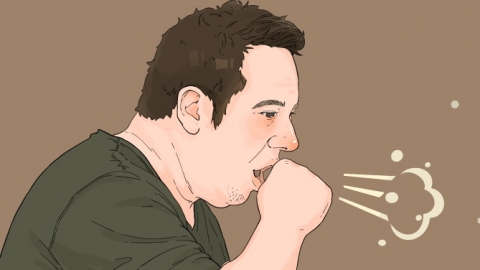What to do about cough during radiation therapy
During radiation therapy, coughing may be caused by radiation irritation of the respiratory mucosa, dry air, colds, bronchitis, pneumonia, and other factors. This can be improved by adjusting the radiation treatment plan, improving environmental humidity, symptomatic treatment, and medication. If coughing persists or worsens, or is accompanied by fever, difficulty breathing, or other symptoms, prompt medical attention is necessary.

1. Radiation irritation of the respiratory mucosa: Radiation beams may damage the mucosa of the throat, trachea, and other parts of the respiratory tract, causing mucosal congestion and edema, which stimulates nerves and leads to coughing—often a dry cough or one with small amounts of phlegm. It is recommended to consult with a doctor to assess the extent of mucosal damage; if necessary, adjust the radiation dose or temporarily suspend treatment. Drinking plenty of water helps keep the respiratory tract moist and reduces mucosal irritation.
2. Dry air: Low humidity in the environment during radiation therapy can cause dry air to irritate the respiratory mucosa, worsening dryness and discomfort, triggering or exacerbating coughing—particularly noticeable at night or upon waking. It is advisable to use a humidifier to maintain indoor humidity between 50% and 60%, avoid prolonged exposure to air-conditioned or heated environments, and wear a mask outdoors to reduce irritation from dry air.
3. Cold: During radiation therapy, patients often have weakened immunity, making them more susceptible to viral infections such as the common cold. Viruses can inflame the respiratory mucosa, leading to coughing, often accompanied by nasal congestion, runny nose, and sore throat. Under medical guidance, patients may take medications such as compound paracetamol and amantadine capsules, ambroxol hydrochloride oral solution, or dextromethorphan guaifenesin syrup to relieve symptoms.
4. Bronchitis: Inflammation of the bronchi caused by bacterial or viral infection or cold air irritation results in coughing and sputum production due to inflammatory secretions stimulating the bronchial mucosa. Sputum is typically white or yellowish and viscous, possibly accompanied by chest tightness. Under medical guidance, medications such as amoxicillin-clavulanate potassium tablets, cefuroxime axetil tablets, or salbutamol aerosol may be used to alleviate symptoms.
5. Pneumonia: Reduced immunity after radiation therapy increases susceptibility to pulmonary infections. Inflammation causes exudation in lung tissue, stimulating the respiratory tract and resulting in cough, sputum production, fever, chest pain, and shortness of breath. Follow medical advice to use medications such as levofloxacin injection, ceftriaxone sodium injection, or bromhexine hydrochloride injection to manage symptoms.
Daily care should include drinking warm water regularly to help thin mucus; avoiding exposure to irritants such as smoke and dust; maintaining a light diet rich in protein and vitamins; dressing warmly to prevent colds; and ventilating rooms regularly to ensure fresh indoor air circulation.






